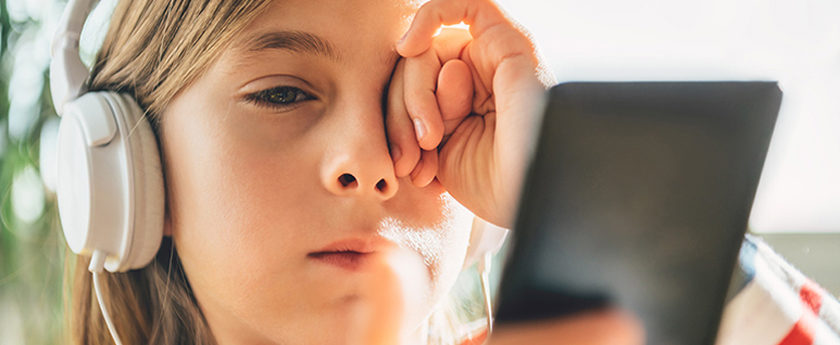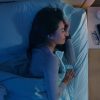A typical day in the life of the average American:
Digital alarm on the Smartphone goes off. Roll over; check email, Facebook and all social feeds before getting out of bed.
Go to work and stare at a computer screen for the next eight to nine hours.
Come home, check social media feeds on Smartphone or tablet and binge-watch the latest season of “Stranger Things” while groaning that HBO delayed “Game of Thrones” final season release to 2019 as a publicity stunt to torture you.
The point is that most Americans spent a significant portion of their life with their eyes glued to electronic devices. The Nielsen Company conducted a survey and found that the average adult in the U.S. spends approximately 8 hours and 47 minutes daily on an electronic device.
This makes us wonder how much these artificial lights are affecting our eye health.
Blue light goes into the eye, but the cornea and crystalline lens don’t filter it out. This means it goes straight to the back of the eye. Experts believe that long-term exposure to blue light may lead to macular cellular damage.
Optometrists report that patients that stare at electronic devices for extended periods of time report digital eye strain. Symptoms may include blurry vision, trouble focusing, tired eyes that are red or dry and headaches.
What happens is that your eyes are trying to focus on the electronic device’s screen, so your eye muscles are being pulled together. After a while, those muscles feel as though they’ve done hundreds of reps of squats and lunges at the virtual gym, so they get fatigued and tired.
Here’s what you can do to minimize eye strain:
- Give your eyes a break. For example, take a break every 20 minutes, looking away from the computer screen for 20 seconds and then focus on something that is at least 20 feet away. This is a great 20/20/20 rule. Set a reminder on your phone if you find that you become consumed with work and forget to take frequent eye breaks
- Light-reducing apps can help but keep in mind the light on your nightstand is also emitting blue light. You can also program some devices to go into a “Night Shift” mode to reduce blue light. However, you should also power down your lights too
- Investing in Blutech lenses, known as blue light filtering glasses, can help reduce eye fatigue and strain. It is also clinically proven to double your melatonin levels, increasing your ability to sleep and reducing awakenings during the night.
Protecting your baby blues from harmful blue rays can help you maintain your vision and eye health longer.
Find BluTech Near You




